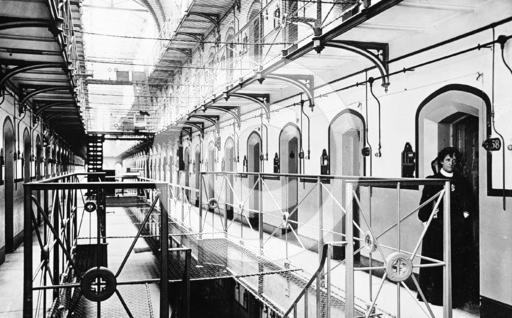
The latest in our series of guest blogs comes from Lydia*, who currently resides in a UK prison. Lydia is writing responding both to Delroy’s blog, and the call from Justice Minister Simon Hughes that half of all women incarcerated should be released. The below is a personal view and does not necessarily reflect the broader views of Only Connect.
Delroy believes that prisons should be made tougher. Although I respect his right to his opinion, to me it seems archaic and misinformed. His view that ‘prison is no longer a punishment for most people’ is a gross generalisation and is certainly not how we who are currently in prison feel. In particular, I can say with certainty that it is not how female prisoners feel.
The notion that prison is ‘easy’ is preposterous. People think that prison is easy because they are televisions in cells. Those people are wrong. Television is the last thing on anyone’s mind as it simply brings back the realisation of everything we lose in being incarcerated.
What does prison mean for most women entering its gates? Half of women entering the justice system suffer from depression and anxiety. That number only grows as they move through a custodial sentence. Is there any wonder? Not only are the majority of women in prison victims of crime themselves, but they are separated from their dependent children and families. They are estranged from their partners, they lose their homes, careers, suffer guilt, shame and financial hardship.
I entered the prison system aged 34. Before that day I had never had so much as a speeding ticket.
Entering prison was terrifying and all consuming and I was certainly not alone with these thoughts. Suicide rates were at an all time high, and women were occupying their time with tormenting themselves with guilt and fear between bouts of appalling acts of self mutilation and self harm.
Those people have never gone to sleep with a lullaby of screaming, all night every night. One night the screams were accompanied by the acrid smell of burnt hair and flesh. The cells filled with the smoke, lingering as our cells only have a tiny metal grid for ventilation. The screams slowly quieted as the woman who had set herself on fire passed out and they finally extinguished her. The following morning I looked in through the open cell door to find two perfectly formed foot imprints melted into the lino of her cell.
I too had to eat in my tiny cell with another inmate. The cell was approximately 10 x 5 foot, into which was a bunk bed, two small shelves to contain our combined worldly possessions, a small metal hand basin and metal toilet. No privacy screen etc so our ‘luxury’ of an in-cell toilet resulted in eating sleeping living in our own filth. There was no differentiation on a woman’s’ needs, sentence or abilities when they were assigned a cell, so I shared mine with a severely mentally unstable woman with debilitating paranoia as part of her ‘crack psychosis’ condition. Eventually they moved her to the segregation unit as she had stabbed someone in the shower with a makeshift shank made out of a whittled down toothbrush.
These incidents are not isolated, they happen every day. Even after all these years I am still disturbed by the desperate measures some women will go to to just stop their own minds tormenting them. So from a female perspective I can reassure you that prison is indeed a punishment beyond that which it is intended, to take away our liberty, many of us never had it in the first place.
Essentially however both Delroy and I agree on one thing - that prison in its current state doesn’t work. Although the Government is looking at reform measures none of these will be effective unless they stop looking at ‘prisoners’ as a whole, and start approaching rehabilitation based on gender specifics and individual needs. At the moment, it is far too much like a lottery - not only which prison you are placed in, but even which wing you are put on in that prison. Needs vary wildly - but so do the ways in which those needs are met.



